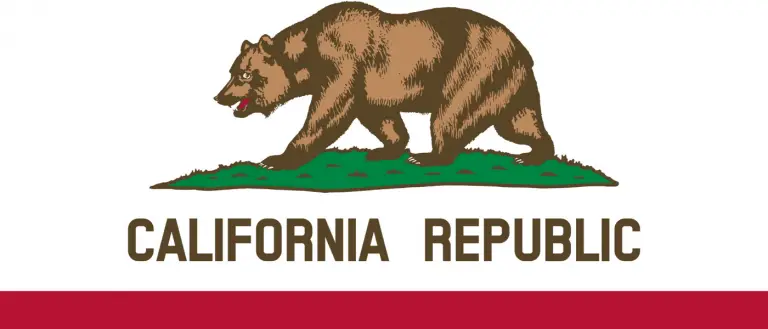California Sports Betting Faces Stakeholder Divides

California sports betting took a major step forward Tuesday, but that progress remains overshadowed by the lengthy legislative journey ahead.
In fact, the Senate Government Organization Committee’s 9-3 vote did even more to reaffirm the key divisions that have, and will likely continue, to thwart legal wagering in what would be American’s largest sports betting market.
Here’s everything would-be California sports bettors should know about California’s gaming background, the deep divides between its stakeholders and what to expect in what would be one of the world’s most consequential jurisdictions for legal wagering.
Key Amendment Details
With a few notable exceptions including the state lottery, horse tracks, cardrooms and Native American casinos, California’s constitution bans gambling. While roughly 20 state legislatures have passed sports betting laws through simple yes-no votes, California would require a constitutional amendment, which requires two-thirds support in both chambers of the California State Legislature, as well as majority support from voters in a future election.
Since the U.S. Supreme Court struck down the federal sports gambling ban in May 2018, California betting backers have tried to place a referendum on a state ballot. After failing in 2018, supporters are trying again with , the subject of Tuesday’s committee vote.
If passed, more than 60 California Native American casinos would be able to accept wagers at their gaming facilities on sovereign tribal lands as well as through mobile devices. The tribes would also be able to offer roulette and dice games such as craps.
The amendment doesn’t allow commercial cardrooms to open sportsbooks, but would codify the right for around 90 such facilities to continue offering “player-banked” card games such as blackjack.
SCA-6 supporters say this would boost the tribes with new offerings while simply allowing the cardrooms to continue with the same offerings they’ve had for years. The tribes believe the cardrooms have been permitted to violate the law for years without consequence.
State Native American groups have argued for two decades that California cardrooms are using a workaround violating a 2000 amendment granting the tribes exclusive rights to these games. They’ve sought multiple court injunctions that have thus far not stopped the cardrooms.
That sense of betrayal, plus the lost access to what they say is the exclusive rights to these card games, is not worth the right to open sportsbooks, or even craps tables or roulette wheels, in the eyes of the tribes.
Explaining the Roots of the Conflict
In 2000, a supermajority of California voters approved , which allowed federally recognized Native American tribes the exclusive right to operate slot machines and dealer-banked card games.
The state’s commercial cardrooms, which had operated in some capacity since the Gold Rush era, are only allowed to offer player-banked games. For example, in a game of blackjack, this means no set dealer, unlike the traditional setup at most commercial casinos. Instead, players are supposed to rotate serving as the “bank” or dealer.
To circumvent this requirement, the cardrooms hired third party proposition (TPP) “players” to serve as the dealer at a table. This workaround was supported by a 2007 memo from former California gambling enforcement head Robert Lytle, who argued the law only required that players were offered the chance to be the dealer. That allowed one player, now the TPP player, to serve full-time as the dealer, effectively ending the mandated player rotation.
As noted by attorney Jeff Butler at Tuesday’s hearing, Lytle left his regulatory role and began working for a cardroom just days after issuing the memo. He was later .
In 2016, then-Attorney General Kamala Harris , ruling the player-dealer position must rotate every 60 minutes. If it doesn’t, there must be a two-minute break in the game. But, crucially, after that break, the same player as before may resume as the dealer.
The tribes have continued fighting the state, now with Attorney General Xavier Becerra at the helm, but have thus far not reached a solution.
“What I was surprised is that I got zero response from our legal advisors,” said Sen. Andreas Borgeas ahead of Tuesday’s vote. “It was explained away that because this matter was in litigation, that they would not opine or provide insights into it.”
As that legal imbroglio continues, the divisive and emotional divide between two of the state’s largest gaming interests remain.
What’s at Stake for Supporters?
The total annual economic impact of California’s cardroom industry is around $5.6 billion dollars, creating around 32,000 jobs and millions in tax revenues. Supporters in many communities with cardrooms hope this amendment would codify a revenue stream some local officials fear they wouldn’t be able survive without.
The Gardens Casino is largest employer in the City of Hawaiian Gardens and generator of 70 percent of the city’s general funds, said City Manager Ernie Hernandez Tuesday. He said losing the games would further diminish funds from a facility that has already been shuttered for more than two months and would cripple its public safety efforts.
“We simply cannot provide essential and quality of life services and programs at the level we have now without this critical revenue source,” Hernandez testified Tuesday. “As a consequence of the COVID-19 pandemic over the last few months, we have painfully learned what it would be like without the gardens casino and the revenues that generates, and I got to tell you that the outlook is very bleak.”
Along with the cardrooms, most other state gaming interests have backed SCA-6. That includes horse tracks, which would also be able to take online and retail sports bets under the amendment – and have been dealing with significant challenges of their own (even before the pandemic).
Notably, the amendment also has the support of the nation’s largest professional sports leagues, which just a few years ago had fought in court to stop the spread of legal sports betting.
“It meets the test of both sound, public policy and fair public policy to all the various stakeholders,” said amendment support group lobbyist Joe Lang before Tuesday’s vote.
What’s at Stake for Opponents?
The 60 or so tribes have largely unified against the state’s other gaming interests.
Whereas the cardrooms are an economic lifeline for many urban parts of the state, tribal casinos are often the largest – and sometimes only – economic driver in many rural areas. Tribal casinos generate an estimated 124,000 jobs, $20 billion in economic output and $9 billion in employee wages.
Though the tribes support in-person sports betting (and have sought their own petition for a 2020 referendum question) there are fears to their prospects if the cardrooms can continue to offer card games, which can be far much more profitable than sportsbooks.
Many Native Americans also feel betrayed by the amendment, which was manifested by multiple, often times impassioned speakers at Tuesday’s hearing.
“Why does a sports wagering bill contain the gift of the games to a cardroom industry whose entire business model is built around circumventing California law for its own benefit and the direct expense of the tribal governments?” said Jeff Grubbe, tribal chairman for the Agua Caliente Band of Cahuilla Indians, at Tuesday’s hearing. “Don’t reward their courtroom industry where serious criminal activity and major violations of state and federal law are uncovered with alarming regularity.”
While testifying against the bill Tuesday, Butler said the very need for such an amendment is unfounded when the cardrooms are in clear violation of the law.
“It’s obvious if cardrooms were already authorized to play those games, no constitutional amendment would be needed,” Butler said.
What’s At Stake for Sports Betting in California?
From a nationwide industry perspective, few developments could be more significant than legal California sports betting.
Far and away the largest state by population, Californians are younger, more affluent and more technologically connected than the national average, factors that all are ripe for a successful sports betting market.
Industry observers further believe California could ramp up faster than most other states. That means that within six months of its first bet, legal sports betting could generate $761 in gross gaming revenue and $282 million in direct tax revenue.
In the right environment, California’s economy, gaming history, deep-rooted fandom and role in the larger U.S. market would be in the top tier of global per capita markets, testified Chris Grove, an analyst and partner at Eilers & Krejcik Gaming, before the committee Tuesday. At maturity, that would mean more than $3 billion in annual GGR and roughly $500 million in direct taxes.
“There is little credible debate that California will be the largest sports betting market in the United States, and also little debate California has the potential to become one of the most productive, major sports setting markets on an adult per capita basis in the world,” Grove said.
For California lawmakers, that’s much-needed revenue for a projected $54 billion budget shortfall. Though it would only be a drop in the proverbial bucket, supporters in Sacramento argue that the state needs to pursue any possible new revenue stream.
“It is awfully hard for any of us to go home and explain to our constituents that we responded to the greatest public health crisis in the last hundred years by cutting healthcare,” said Assemblymember Adam Gray, an SCA-6 co-sponsor. “Let’s take every step we can members to ensure that we don’t have to make those cuts.”
What Happens Next?
The bill now awaits action in the powerful Senate Appropriations Committee, which oversees spending matters. If advanced by the committee, it would go to a full vote on the full floor, where it would need two-thirds support to pass onto the California State Assembly.
It would then go through the same process in the Assembly, creating a difficult legislative gauntlet in the best of scenarios. Should it somehow make it out of both houses with two-thirds support, it would then require majority support from voters in the Nov. 3 elections.
Dodd promised Tuesday he wouldn’t bring the bill to the Senate floor without amendments that address the tribes’ concerns. But as long as the cardrooms can continue offering TPP players at card games, it seems unlikely to gain support from the tribes – and enough of the legislature.
Just as some lawmakers will steadfastly support the cardrooms, others will support the tribes, either because they too feel the current situation is unfair and/or because they represent communities that are just as, if not more so, dependent on tribal gaming revenues as are dozens of localities with cardrooms.
With or without tribal backing, supporters of California sports betting efforts will try to convince their colleagues on two points: eliminating the illegal sports betting market and, more critically, helping solve the budget shortfall.
“I know there are people on both sides who will never agree to a solution, but I hope that if you take a moment to really look at what this bill is, understanding that it is still a work in progress, you will come to the same conclusion that I have, that we cannot afford inaction,” Dodd said.
If that is enough to pass the referendum on the 2020 ballot remains to be seen. In the balance could hang the futures of thousands of jobs and hundreds of millions in revenues.
Ryan Butler is a legislation analyst for ycgts.shop specializing in US sports betting legislation. Ryan breaks down the latest bills in each state to ensure our readers are up-to-date on where their states sit on sports betting. You’ll often find Ryan listening to committee hearings or preparing for the latest legislation based conference.







